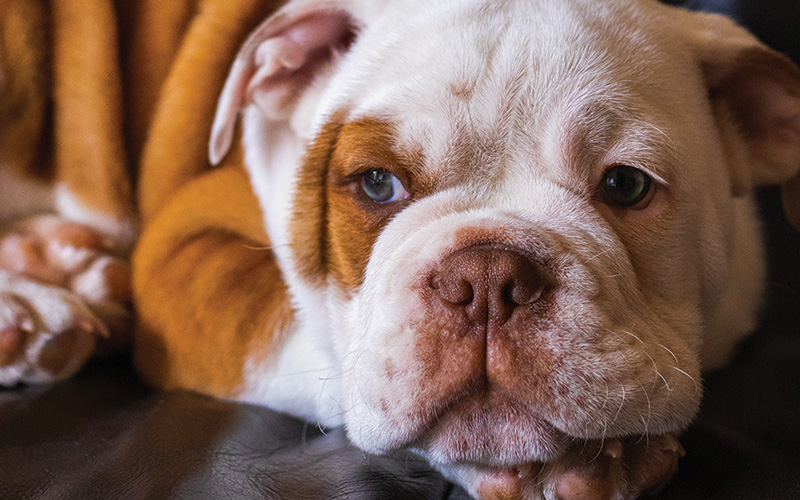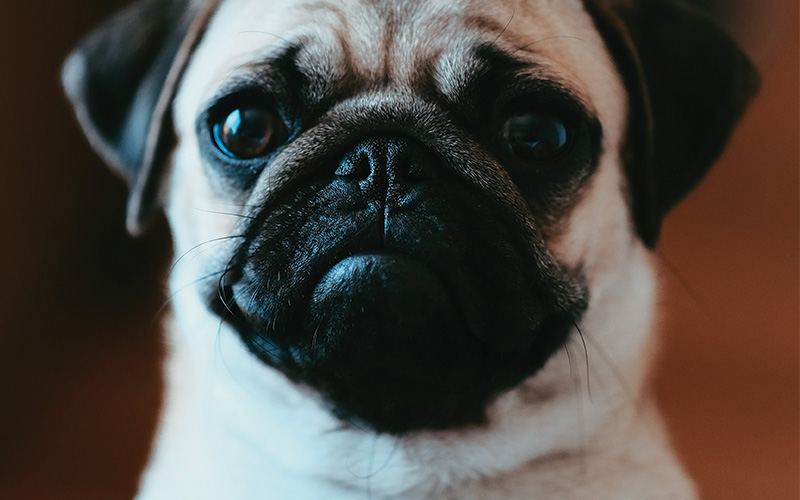Brachycephalic obstructive airway syndrome is a disease affecting the upper airways (nose and back of throat) of dogs (and less commonly some cats) with “pushed-in” faces.
The obstruction occurs at 3 main sites
- Narrow nostrils
- Overlong soft palate (roof of the mouth)
- Larynx (“valve” at the top of the windpipe)
Animals affected by this condition will have to expend more effort while breathing to get air past these obstructions.

How do I tell if my animal is affected?
Animals with BOAS will, essentially, breathe more loudly. Compare how a bulldog breathes to a greyhound. These sounds are related to vibration of the parts causing the obstruction. The most commonly affected dog breeds are Pugs, Bulldogs and French Bulldogs.
What are the consequences of BOAS?
As well as reducing oxygen delivery and therefore athletic ability, over time, the vacuum created at the back of the throat due to the forced inspiration will suck acid up from the stomach and cause reflux and will sometimes lead to permanent collapse of the larynx. During warm weather, affected animals are more prone to overheating as panting is the main means to reduce body temperature in dogs. Swelling of the throat, especially during warm weather, can also lead to a more severe, life-threatening form of airway obstruction.

How is BOAS treated?
Surgical removal or reduction of the regions of obstruction is the best way to treat the condition.
Narrow nostrils are widened by removing a wedge of tissue, overlong soft palates are shortened and tissue within the larynx can be removed to open airflow. In addition, maintaining a lean bodyweight is very helpful as extra fat deposits will further narrow the airways.
If not treated at a young age, affected animals can progress to the point that a permanent tracheostomy (hole in the windpipe) is the only means to manage them.
If you think your pet is affected and would like to discuss this please call the surgery on 0113 824 2700 and we can book you an appointment wit one of our vets.


